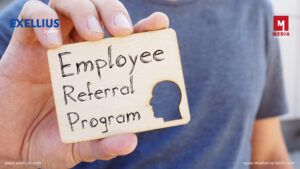
Estimated reading time: 4 minutes
This is a long story, but worth a read. As an HR professional, it’s not unusual for employees to share stories expressing concerns like this one that has so many layers to it.
In November, I started a new job. During my first month, I was forced to work positions I wasn’t scheduled for and lost out on server tips since I had far less customers. I was forced to tip out a salaried manager.
In January, I was scheduled for surgery, which my employer knew about before hiring me. And they assured me that I’d still have a job after returning.
The day before my surgery, my employer scheduled to have a COVID test, even though I had COVID within the past 90 days. I had written documentation showing I could be at work even if I did recently have COVID, but I was sent home in the middle of my shift. On the day of surgery plus 2 days after I tried reaching managers to let them know I would probably need all 3 weeks that my surgeon said I needed to recuperate. I got no response.
The manager called me 2 days later saying there were rumors that I was not coming back after surgery, which I never spoke to them about. Admittedly, I was going to start working a day job which I had talked to the manager about in messages, in writing, but then ended up falling through.
I went to both managers and said I was feeling like I was being harassed. I have documentation of several encounters mainly with the owner harassing me. I said that something needed to be done about it since it was uncalled for. A week later, I was fired.
I’ve reached out to the attorney general, better business bureau, and a private attorney for wrongful termination along time with temporal disability discrimination and retaliation. Is there a case?
I wish I could provide a definitive answer to this situation. But I can’t – there are way too many things we don’t know. What state(s) are the business and the employee located? How many employees does the company have? There’s no mention of HR, does that mean there is no HR department, and no internal investigation was conducted? What policies and procedures are in place? And the list of questions goes on…you get the point.
But I do want to share some resources from HR Bartender that might be helpful with similar concerns, whether you’re an employer or employee.
Defining Workplace Retaliation
Workplace retaliation is serious. Perceptions of retaliatory action can damage credibility, destroy employee morale, and have a negative impact on workplace productivity. Organizations need to make sure that supervisors and managers clearly understand the company’s zero-tolerance for this type of behavior.
Retaliation claims are more than a legal risk. Yes, it’s true – retaliation can cost companies thousands of dollars. But they can also ruin company culture. And when your culture is of distrust, I don’t have to tell you what that means for employee recruitment, engagement, and retention.
Employees: When Should You Lawyer Up
An employee should have someone they trust to be a sounding board in the decision-making process. It could be a spouse or partner, a good friend, shop steward, or even a counselor in an employee assistance program (EAP). That person can offer the employee other perspectives and viewpoints, provide emotional support, and help the employee sift facts from subjective interpretations. That being said, there are times when you absolutely, positively need a lawyer.
Again, I wish there was a clear answer that I could provide. But the good news is, it sounds like this reader is searching for answers. Hopefully, they find some. Even if the answer isn’t what they wanted to hear.
And hopefully, if any employer is reading this, they might ask themselves, “Could this be our company?” “Are we doing a good job of listening to employees and addressing their concerns?” Organizations should have a zero tolerance for harassing behavior and retaliation.
Image captured by Sharlyn Lauby while exploring the streets of Fort Lauderdale, FL
The post Organizations Need to Take Employee Concerns Seriously – Ask HR Bartender appeared first on hr bartender.








